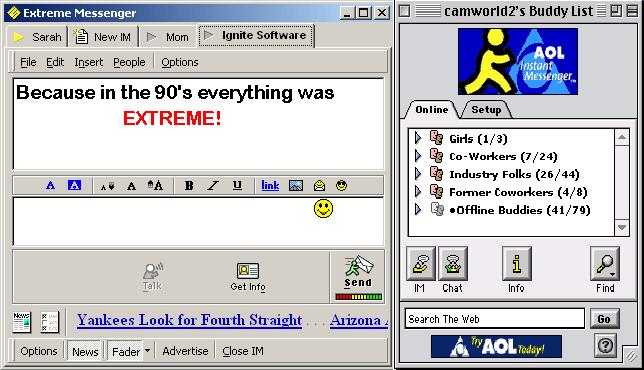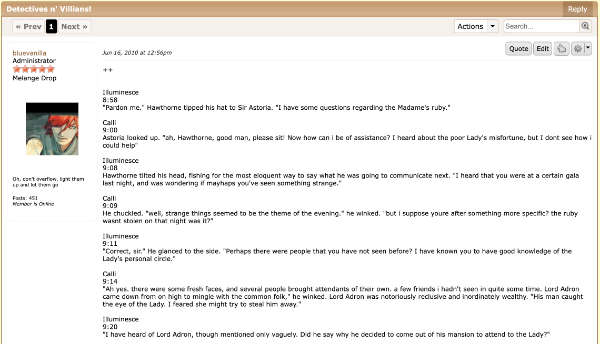Who participates in nostalgic discourse?
Years ago, I was chatting with some coworkers from the U.S. about our favorite nostalgic video games. We talked about Super NES/Famicom, Atari, and the Commodore 64. It was nice conversation, though I lied through most of it.
Unlike my coworkers, I didn't own any of these consoles. My parents didn't believe in having a TV or video games and I didn't have money. When I was a kid, I stole time from my school's computer lab to play educational games like Pepper's Adventure in Time or Number Munchers. That was my nostalgia.
When my coworkers left, another approached me.
"It's weird," he said. "My family never had enough money to get all those consoles. I just played games in my school's computer lab."
I felt like a Catholic at confessional.
"Oh," I said, "me too."
"So why did you know so much about those games?"
"I guess...I studied someone else's nostalgia to fit in," I admitted.
He visibly softened. "Guess you didn't feel comfortable talking about your history, either."
Separate memories of the same time
The more I talked to people, the more I realized that participating in discourse on nostalgia requires people to be of a certain economic class, to be of a certain gender or to speak a certain language. It's not just video games. I see examples of this in Web 1.0, too.
When people talk about Web 1.0 and the nostalgic Internet, they commonly mean:
- Making your personal Geocities site
- Hanging out with friends on AIM
- Diving into the dark depths of 4chan
- Watching funny Newgrounds/Ebaumsworld/AlbinoBlackSheep flash animations
- Pranking your friends with Goatse

Credit: Hoju_Koolander via RetroJunk
But some others might remember...
- Starting their own roleplay community on Proboards
- Obsessively customizing their SkyBlog
- Writing fanfic where Sailor Pluto was canonically black
- Getting creeped out by The Red Room
- Reading their favorite author's webcomic on Keenspot

This list isn't one that is commonly shared as "nostalgic" when brought up in common (U.S. centric) conversation, but it is an integral part of the 90's and early 00's Internet culture for many people.
Both remembered histories here are true and valid. We personalized our corner of the web, read others' work, made community and put ourselves out there.
Limited by circumstance, but mostly bias
If you were part of a marginalized group, you might not have seen yourself represented in the "nostalgic" Web 1.0. And, if you were priveliged enough to participate in Web 1.0 in the 90's and early 00's like myself, you might not even realize those voices were missing. It would be convenient to explain away the lack of these voices due to lack of access, or worse, lack of ability, but in reality, diverse and thoughtful content from black, brown, LGBTQIA+ and minority folx didn't suddenly appear out of thin air; we systemically ignored them.
Think about how we use the word nostalgic when we talk about Web 1.0. When we use this word in reference to a world we, but others, didn't experience, we can communicate this:
"When we say nostalgic, we mean middle class."
"When we say nostalgic, we mean white."
"When we say nostalgic, we mean not for you."
Of course, this isn't our intended message. But intent isn't magic.
Even now, these makers are kept behind an algorithmic wall in Web 2.0. But, look behind the curtain and they are there. They always have been. This is something I want to see more of in the Yesterweb and the recreation of the New Web, as we all bring our biases to the forefront when searching, deciding on link lists and whose site we will link ours to. A YouTuber named Fiq does a great job of explaining this in his video "Break Bread" where he talks about how YouTube will easily recommend black viewers to other black creators, but it takes far more effort to "break the wall" to get his videos shown to white viewers.
The algorithm of Web 2.0 was built with human bias, and when we rebuild, how are we considering our own bias in recreating this new reality? Are we continuing to stay in our bubble of creators who see the same "nostalgic" history that we do, or are we actively seeking out points of view that challenge us, excite us, and allow us to dissolve the systemic bias that we ourselves have been complicit in upholding?
There many lenses with which to view our Internet history. The queer lens, the blerdy lens, the international lens, the recovering Catholic lens.
Let's remember that there's not one way to tell a story.

